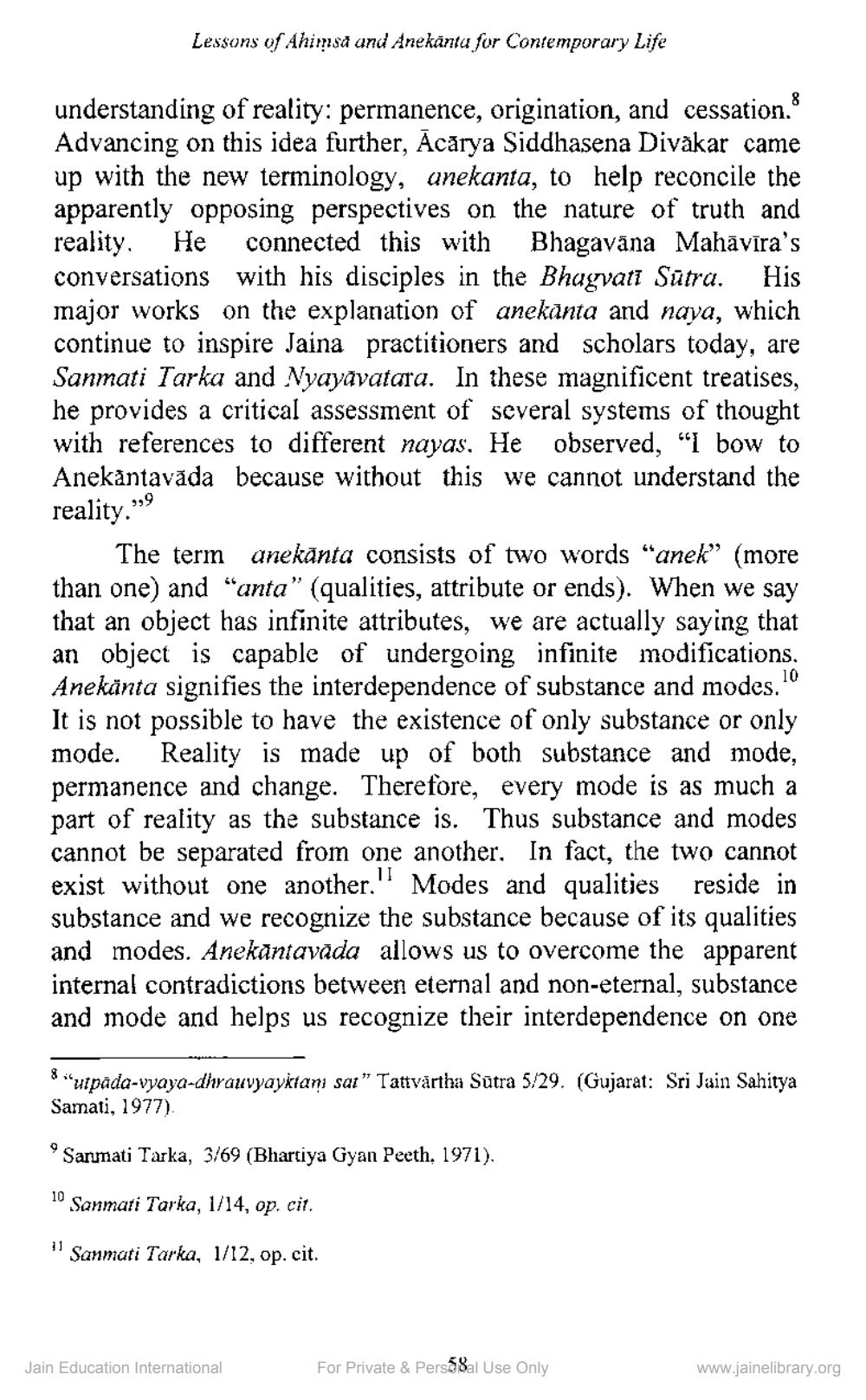Book Title: Mahavira Anekantavada and World Today Author(s): Charitrapragya Samani Publisher: Z_Lessons_of_Ahimsa_and_Anekanta_for_Contemporary_Life_014006.pdf View full book textPage 5
________________ Lessons of Ahimsa and Anekāntu for Contemporary Life understanding of reality: permanence, origination, and cessation. Advancing on this idea further, Acārya Siddhasena Diväkar came up with the new terminology, anekanta, to help reconcile the apparently opposing perspectives on the nature of truth and reality. He connected this with Bhagavāna Mahāvīra's conversations with his disciples in the Bhagvati Sutra. His major works on the explanation of anekanta and naya, which continue to inspire Jaina practitioners and scholars today, are Sanmati Tarka and Nyayavatara. In these magnificent treatises, he provides a critical assessment of several systems of thought with references to different nayas. He observed, “I bow to Anekantavada because without this we cannot understand the reality." The term anekānta consists of two words "anek" (more than one) and “anta" (qualities, attribute or ends). When we say that an object has infinite attributes, we are actually saying that an object is capable of undergoing infinite modifications. Anekanta signifies the interdependence of substance and modes. It is not possible to have the existence of only substance or only mode. Reality is made up of both substance and mode, permanence and change. Therefore, every mode is as much a part of reality as the substance is. Thus substance and modes cannot be separated from one another. In fact, the two cannot exist without one another." Modes and qualities reside in substance and we recognize the substance because of its qualities and modes. Anekantavāda allows us to overcome the apparent internal contradictions between eternal and non-eternal, substance and mode and helps us recognize their interdependence on one & suipāda-vyaya-dhrauvyayitam sar" Tattvārtha Sūtra 5/29. (Gujarat: Sri Jain Sahitya Samnati, 1977). Sarmati Tarka, 3/69 (Bhartiya Gyan Peeth, 1971). 10 Sanmati Tarka, 1/14, op. cit. "Sanmari Tarka, 1/12, op. cit. Jain Education International For Private & Pers58al Use Only www.jainelibrary.orgPage Navigation
1 ... 3 4 5 6 7 8
